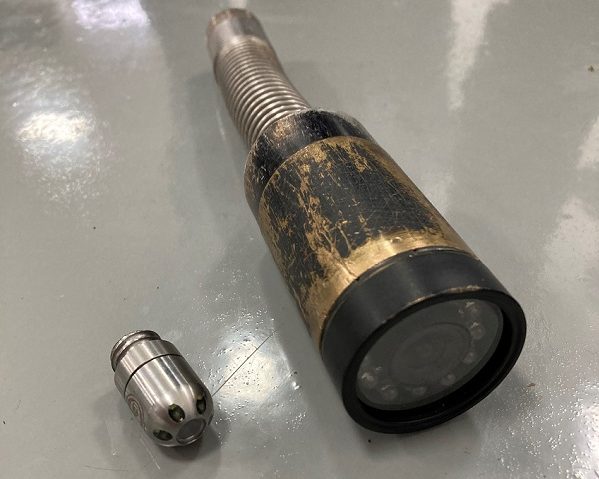Welsh Water and API (Advanced Pipe Inspection) have announced their new innovative water camera system used to investigate the condition of their supply pipes. The new camera system enters the water main via existing fire hydrants and creates a live video recording of the size and condition of the pipe, thereby avoiding the need for any digging.
This new process is approximately three times quicker and a far smoother method for their teams and will enable the work force to spend less time in highways and on busy roads, making it a safer working environment. Furthermore, the teams have witnessed up to 74% savings in cost per survey and a fall in carbon costs by up to 92% per survey.
Key stakeholders from Welsh Water, API, AVK and Morrison Utility Services came together in November 2021 to demonstrate and display the advanced technology.
This project formed part of the multi-million-pound Zonal Studies investment made by the not-for-profit company to improve services to customers and help protect the environment. Between 2020 and 2025, the company is set to invest a further £1.8 billion across the country.
Trystan Davies, Programme Manager for Welsh Water who created and led the improvement initiative said “innovation is critically important to overcoming current and future challenges and working collaboratively with the supply chain allows us to focus on solving a common problem outside of the normal client – contractor relationship. Utilising the collective knowledge and experience of the group helped us learn and develop new capabilities in an iterative fashion to make greater improvements.”
Clive Webster of API said, “The smaller cameras can enter the water main via existing fire hydrants to access 10 metres of pipe instead of 2 inches of pipe and to create a video recording to display the pipe size, condition and the amount of sediment in the pipe.”
Jon Prout, Civil Structural Engineering Manager for Welsh Water, said “A much smaller team of two people can now carry out 6 to 10 surveys a day instead of 2 to 3 through traditional methods, and even work with no traffic management in place, which is beneficial especially within a busy area such as Aberystwyth or Newport.”



